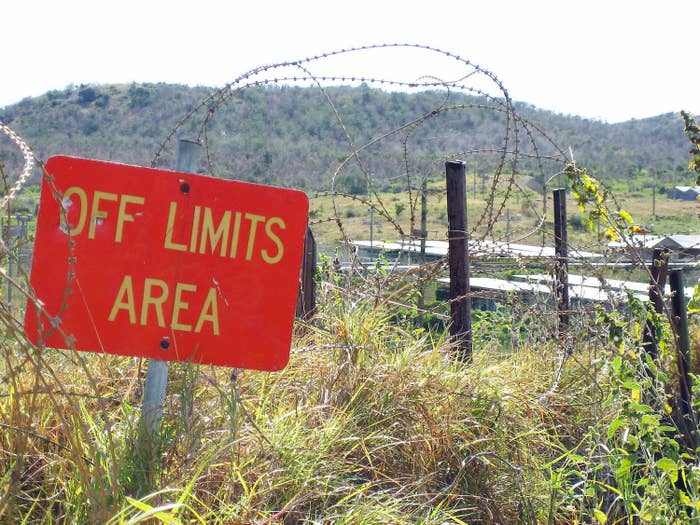
Military psychologists won’t be returning to the detention facility at Guantánamo Bay in Cuba anytime soon.
On Wednesday evening in San Francisco, the American Psychological Association’s governing council voted in a ratio of almost 2–1 against a proposal made by its military psychology division and backed by the body’s leaders. The proposal would have allowed psychologists back to Guantánamo to provide mental health care for the remaining 40 detainees.
The vote marks the latest twist in a bitter dispute over psychologists’ role in the harsh interrogation methods that were adopted by the US military at Guantánamo and other sites in the early days of the war on terror under President George W. Bush.
Supporters of the proposal argued that the move was needed to provide detainees with mental health care required under the Geneva Conventions. Opponents feared it would set the scene for psychologists to get involved once more in interrogations — at an ominous time, given President Donald Trump’s enthusiasm during his presidential campaign for waterboarding and other harsh methods.
In 2015, the APA commissioned a report from former federal prosecutor David Hoffman, who concluded that the association colluded with the Pentagon in 2005 to maintain loose ethical guidelines that allowed psychologists to assist in brutal interrogations. In August that year at a meeting in Toronto, the APA’s council voted to completely exclude psychologists from Guantánamo and other detention sites deemed by the UN to be in breach of international law.
The association has been sharply divided ever since, with psychologists who were criticized in the report suing Hoffman, his Chicago law firm, and the APA for defamation. Those psychologists say that Hoffman ignored Department of Defense policies — which some of them helped write — that by 2005 had prohibited abusive interrogation techniques.
On Wednesday, the APA’s council voted down the plan to allow psychologists back to Guantánamo by 105 votes to 57, with 15 abstentions — but only after the military psychologists tried to refer the issue to a special working group, postponing the vote on their own proposal.
"You take the temperature of the room," Sally Harvey, a retired military psychologist who supported the proposal, told reporters after the council meeting, explaining the move. "Clearly people were voting out of emotion, perhaps, and didn’t quite know which side of the fence they were on."
Opponents of the proposal, believing they had the votes to carry the day, argued against a delay and won that vote by 95–76, with 1 abstention.
Harvey complained that opponents had misrepresented the intention of the proposed policy. "It is not about interrogation," she said. "It is not about Donald Trump."

Soon after the debate on the proposal went underway, reporters and members of the public were made to leave. That happened after Gerald Koocher of DePaul University in Chicago, a former APA president who was criticized in the Hoffman report, falsely claimed that reporters who were recording the meeting were breaching California’s "two-party" recording law, which requires the consent of everyone involved. (In fact, this law applies only to private conservations, not public meetings, and Koocher corrected himself on advice from APA’s legal counsel.)
Carrie Kennedy, a military psychologist at the Department of Defense’s Psychological Health Center of Excellence in Falls Church, Virginia, who was scheduled to speak in favor of the proposal, then said she couldn’t at an open session because she didn’t have permission to speak to the media. After that, the council voted to carry on behind closed doors.
About an hour later, with council members sworn to secrecy about what was actually said, the vote brought a heavy defeat for the military psychologists.
"It was an amazing restatement of the ethical position that APA came to after years of debate and discussion," Stephen Soldz of the Boston Graduate School of Psychoanalysis, one of the leading "dissidents" who has long argued that the APA was complicit in torture, told BuzzFeed News.
Still, he does not expect that this week’s vote will be the end of the line, given that psychologists have been arguing about the legacy of their profession’s role in abusive interrogations for more than a decade.
"I doubt that it’s going away," he said.

